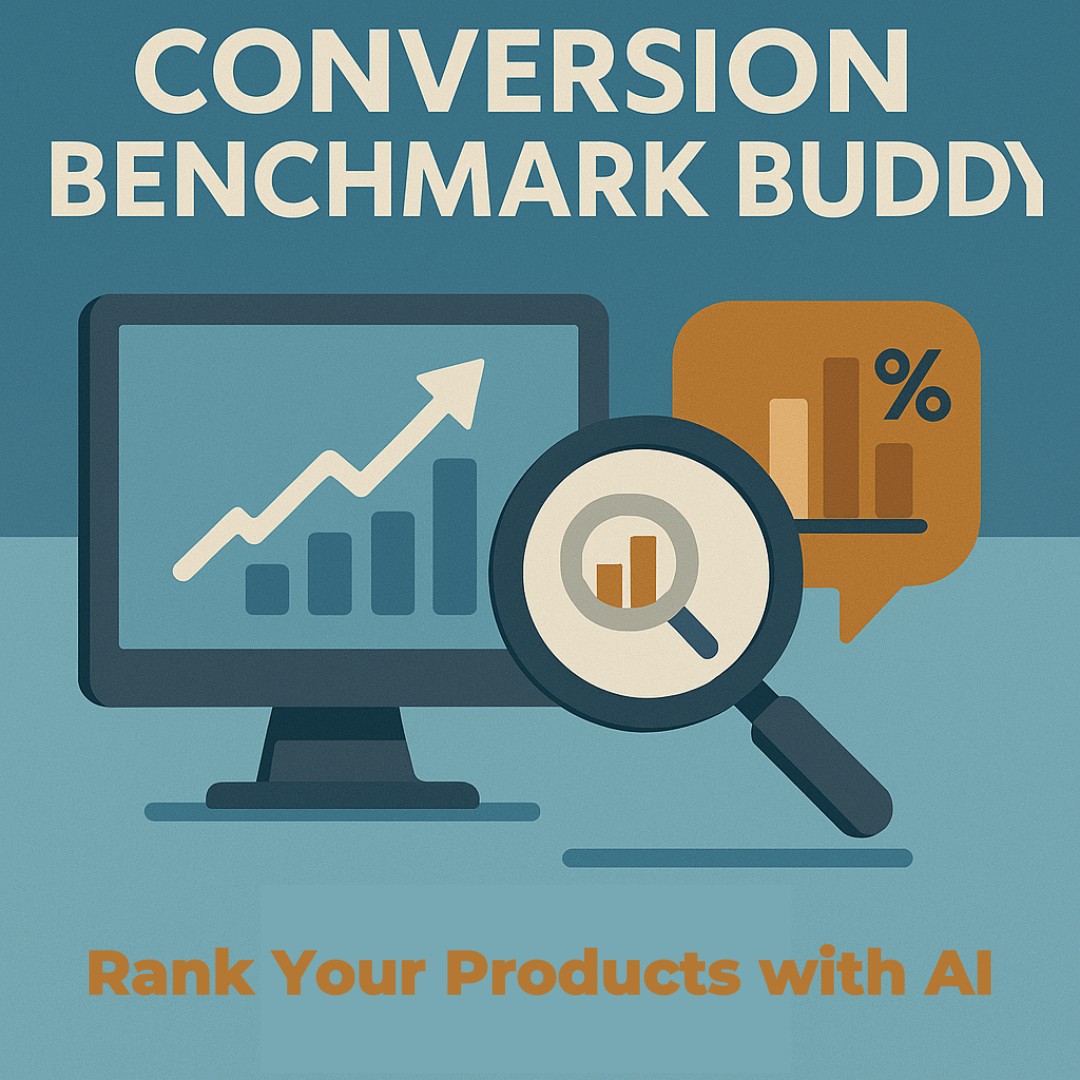Conversion Benchmark Buddy CustomGPT
The Conversion Benchmark Buddy is a powerful tool designed to help Amazon sellers quickly assess how their product listings are performing compared to industry benchmarks. By analyzing your conversion rates and comparing them to established standards, you can identify areas for improvement and make data-driven decisions to boost your sales and profitability.
This tool is perfect for pinpointing weaknesses in your listings, validating optimization efforts, and setting realistic performance targets. Whether you’re launching a new product or troubleshooting an underperforming listing, the Conversion Benchmark Buddy streamlines the process with precision.

How to Use Conversion Benchmark Buddy GPT
Follow these simple steps to find your competitors keyword conversion rates, and your top rankable keywords!
Gather the Required Data from These Four Sources:
- Brand Analytics – Top Search Terms
- Search Query Performance Report
- Sponsored Products Search Term Report
- Helium 10 Cerebro Report
Refine your datasets to isolate the most relevant keywords:
- Remove irrelevant or low-performing keywords.
- Focus on keywords with high purchase intent, strong conversion rates, and good organic rankings.
- Organize your filtered data in a spreadsheet for easy access.
Upload your filtered keyword data to the Conversion Benchmark Buddy Tool:
- Go to the Conversion Benchmark Buddy page on stonesgoods.com.
- Upload your files and let the tool process your data.
- Wait for the tool to generate comprehensive keyword benchmarks and reports.
Analyze the processed data to compare your performance against competitors:
- Review conversion rates, organic rankings, and keyword performance metrics.
- Identify gaps where you outperform or underperform compared to competitors.
- Save your benchmarked data for comparison over time.
Compare your keyword performance against your competitors:
- Look for keywords where your conversion rate is higher than the top competitor’s.
- Identify keywords with strong PPC performance but low organic rank.
- Determine which keywords to focus on for better organic ranking.
Run campaigns to improve visibility for your top keywords:
- Create single keyword campaigns using exact or phrase match targeting.
- Negate these keywords in other campaigns to avoid competing against yourself.
- Continuously monitor and adjust bids to maintain optimal performance.
Monitor and reassess keyword performance regularly:
- Use tools like Helium 10 or Data Roa to track rankings and keyword performance.
- Measure improvements in organic ranking and conversion rates.
- Adjust strategies based on results and focus on high-converting keywords.
